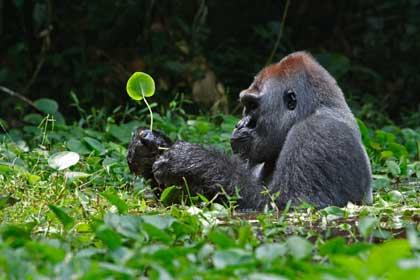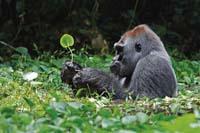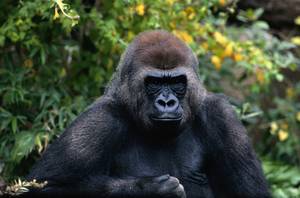The microorganism responsible for malaria can come from gorillas
2010/09/23 Aulestiarte Lete, Izaro - Elhuyar Zientziaren Komunikazioa

The origin of the malaria microorganism can be in gorillas and not chimpanzees, as previously thought. At least researchers from the University of Alabama in the US have reached this conclusion. The journal Nature has given the news.
The microorganism Plasmodium falciparum is responsible for most types of malaria in humans and is transmitted by the bite of the mosquito Anopheles gambiae. But so far it was not very clear what the origin of the parasite was.
In this regard, researchers have analyzed nearly 3,000 samples of excrement collected in wild populations of chimpanzees, bonobos and gorillas (sub-Saharan Africa). And in these samples the DNA of the detected Plasmodium has been sequenced. It has been explained that the parasites detected in the samples of gorillas of the west of the continent (Gorilla gorilla) are those that have greater similarity with those observed in humans. And so they have come to the conclusion that in this species may be the origin of malaria. “The parasite would pass from the Western gorillas to man, and not from the chimpanzees to man, as previously thought. In addition, we consider that this inter-species transmission was probably carried out in a single step,” said one of the authors of the study.
On the other hand, during the study they found that primates were contaminated by at least nine species of Plasmodium. Three of them were not identified to date.
Researchers believe it is important to understand the origin of plasmodium, as it can help in research against the disease that causes so many deaths a year.
Image courtesy of: Ian Nichols/ National Geographic Society.

Gai honi buruzko eduki gehiago
Elhuyarrek garatutako teknologia






